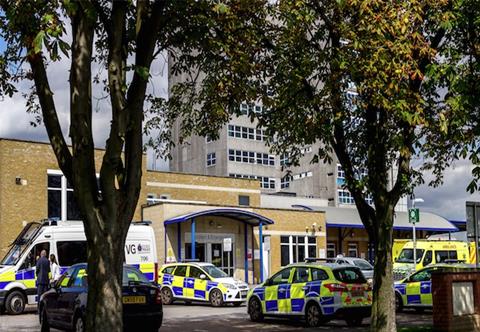
NHS staff across England, Wales, Northern Ireland, and Scotland are to receive a 1% pay rise from 1 April 2017.
The NHS Pay Review Body (NHSPRB), which provides independent pay advice to the government, has recommended a 1% increase to all NHS Agenda for Change pay points for 2017-2018 in its Thirtieth report 2017 and Scotland supplement.
A further 1% increase to the high cost area supplement minimum and maximum payments has also been recommended, and that pay point one in Northern Ireland is adjusted to ensure it is above the 2017-18 level of the national living wage.
The Welsh government will also increase pay for the lowest paid employees in the NHS in line with the Living Wage Foundation's voluntary living wage rate. This will see some 7,000 staff receive at least £8.45 an hour from April 2017.
Vaughan Gething, health secretary for Wales, said: “I remain committed to tackling the issue of low pay in Wales and will ensure the lowest earners in NHS Wales are paid a fair salary, as recommended by the Living Wage Foundation. I am therefore implementing the uplift to the living wage to £8.45 an hour for all directly employed NHS staff from 1 April 2017.
“I am pleased that I am able to award pay increases in line with the independent pay review bodies’ pay recommendations and to demonstrate our ongoing commitment to staff working in the NHS in Wales. I am also committed to working in social partnership with employers and those representing NHS staff to consider the way forward on the other issues the pay review bodies raised.”
Dave Prentis, general secretary at Unison, said: ““Health service employees go above and beyond caring for patients and keeping the health service running, often in very challenging circumstances. The government insists it values them, but after endless pay freezes and wage caps, they feel taken for granted. Day after day NHS staff are giving 100%, but getting just 1% in return.
“As the gap grows between take-home pay and household expenditure, NHS staff can’t stretch their money far enough. And as wages increase elsewhere, they feel increasingly left behind. Low pay makes it tough for the NHS to hold onto experienced employees and recruit the next generation. And without enough staff, patient care will suffer. The pay of top judges and MPs has already breached the government’s 1% limit. It’s high time ministers stopped penalising NHS employees and gave them a decent pay rise.”
Janet Davies, chief executive officer at the Royal College of Nursing, added: “This deals a bitter blow to nursing staff across England. The nursing profession is rightly held in high regard but kind words don’t pay the bills. With this announcement, the government will deter new people from joining the nursing profession at the very moment it is failing to retain staff and European colleagues in particular head for the door.
“It amounts to another real-terms cut to pay packets; the government is still refusing to keep nursing wages in line with inflation. The government has already cut nursing pay by 14% in real terms, leaving too many struggling and turning to foodbanks and hardship grants.”











